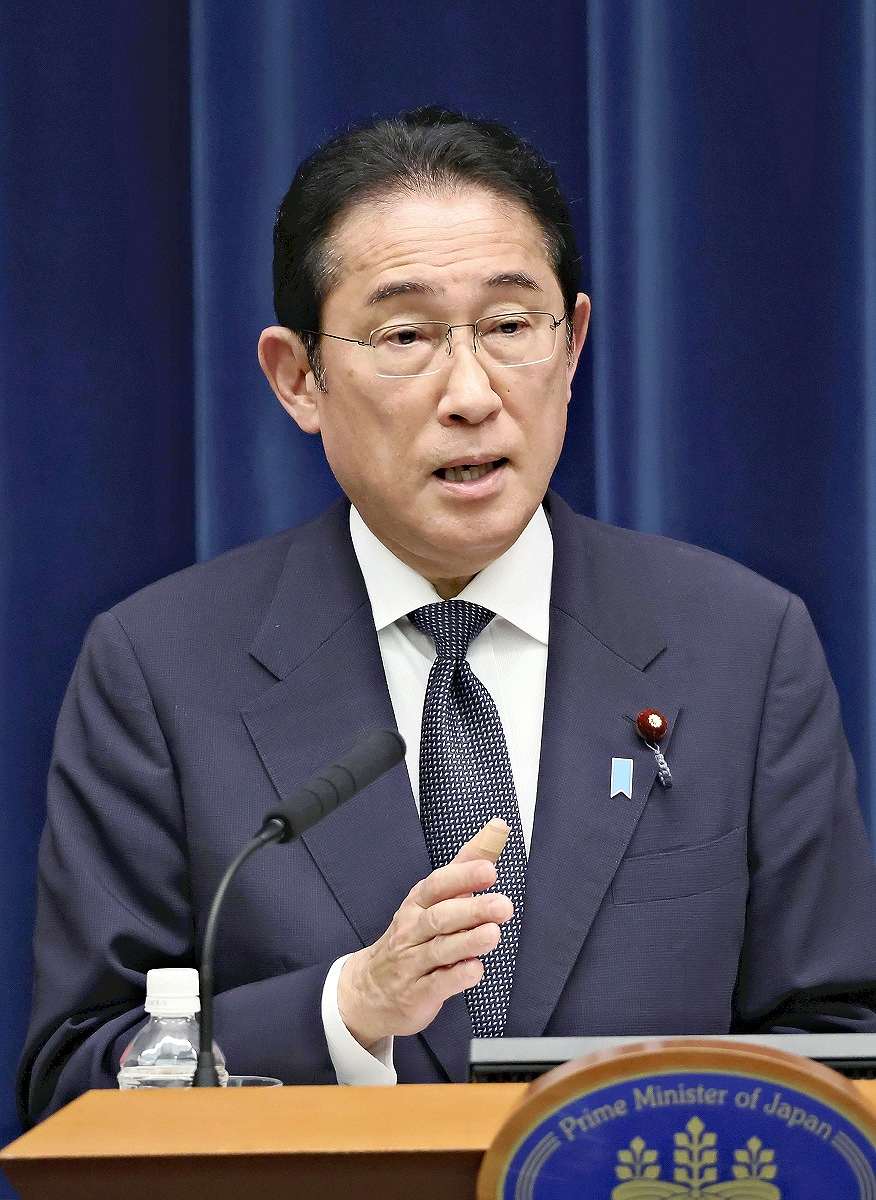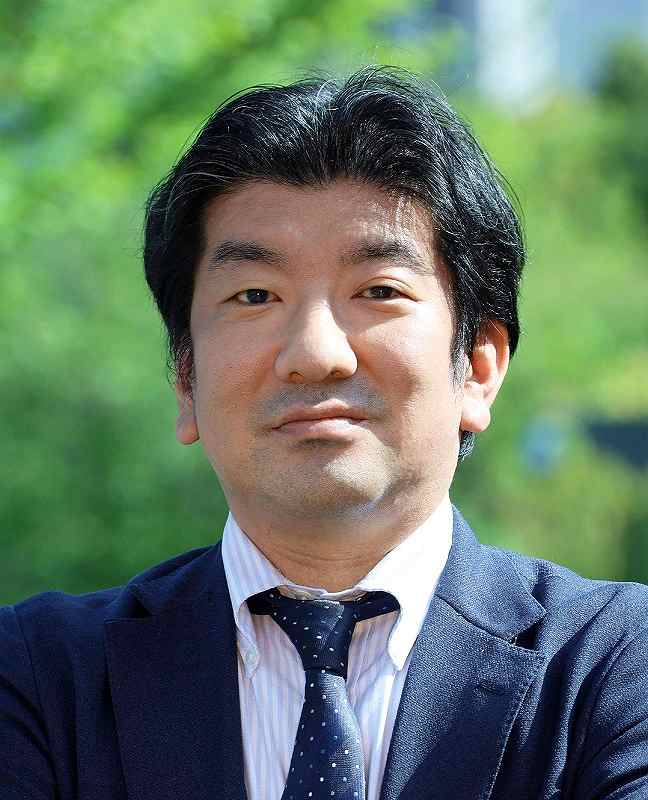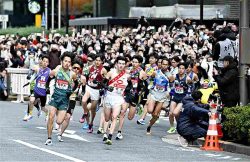Leadership Lacking in LDP Leadership Race; Neither Kishida nor Rivals Show Vision for Nation

Prime Minister Fumio Kishida expresses his willingness to run for the LDP presidency at a press conference following the effective end of the 213th ordinary Diet session on June 21.
8:00 JST, July 13, 2024
“Who is likely to be the next Liberal Democratic Party president?”
Walking around Tokyo’s Nagatacho political district these days, one often hears this question asked by Diet members and their secretaries. Since the Diet session ended on June 23, Japanese politics has been dominated by the LDP presidential election scheduled for this autumn. As the president of the ruling LDP will also become the prime minister, the intense interest is natural. But it is worrying that there seems to be a lack of substantive debate.
Whether Prime Minister Fumio Kishida is reelected or a new leader is chosen, the real question should be: What policies should be implemented, and how? It is also essential to show how the LDP should be reformed in order to resolve the political mistrust that has arisen as a result of some of its factions’ violations of the Political Funds Control Law.
However, most LDP lawmakers are only focused on the question of which leader can boost the sluggish approval ratings of the Cabinet and the party and gain an advantage in the next House of Representatives election as well as next summer’s House of Councillors election. The term of office of members of the House of Representatives expires in October next year.
In some respects, this is unavoidable, as there is a strong possibility that the two Diet elections, in which the lawmakers’ political lives will be at stake, will be held under the administration of whoever wins the contest for the party presidency. Nevertheless, there is also a danger that the election will only be a popularity contest. One former cabinet minister is concerned that “if we simply change the ‘face’ of the leader without a vision, the voters will see right through our frivolousness.”
Kishida recently expressed his frustration to those around him when he heard buzzing about who would be the best president to help LDP representatives win the next lower house election. An aide to Kishida remarked, “Many members of the Diet criticize Kishida, but none propose what they would do themselves if they were the prime minister.”
Of course, public support is essential for advancing policy in a democracy. Kishida, who marked his 1,000th day in office on June 29, has made progress on outstanding issues. His achievements include a significant increase in defense spending and the revision of three key documents, including the National Security Strategy, to clarify the nation’s possession of counterattack capabilities. He also announced his intention to promote the resumption of operations at nuclear power plants and to consider building new nuclear reactors. Kishida has expressed to those around him his pride at having done what needs to be done in both domestic and foreign affairs.
So why has his approval rating failed to rise? Kishida needs to address the problem in good faith. Although Kishida has demonstrated his ability to resolve issues that were obvious even before he came to power, he has been beset by a reputation for lacking any real agenda of his own. Kishida is also notable for taking an evasive political stance. In the area of measures to combat the declining birth rate, Kishida has ducked discussions on increasing the painful burden on the people. A fixed-amount tax cut, intended to boost his Cabinet’s approval rating, was also unpopular.
An unwavering political philosophy. The leadership skills to win over the public and the party. A clear vision for the future of Japan. These are the things Kishida seems to lack.
It is undeniable that rather than leading from the front, he has been overly conscious of public opinion and the situation within the party, and has managed the government in a haphazard manner. In addition to his onetime selling point, “the ability to listen,” Kishida also needs to demonstrate “the ability to persuade.”
Meanwhile, the high-profile candidates to succeed Kishida are also lacking in concrete policy initiatives. Toshimitsu Motegi is the party’s secretary general, while Taro Kono and Sanae Takaichi are incumbent Cabinet ministers. They are in the position of supporting the Kishida administration and have not directly opposed the prime minister’s policies.
Shigeru Ishiba, a former LDP secretary general, ranks first in terms of popularity in opinion polls. But most party insiders think that although Ishiba is popular with the public because he speaks freely from a position of opposing the government and the party’s mainstream, he is not supported in what he would like to do if he became prime minister himself.
In order to become prime minister, it is important to be prepared to conceptualize how the Prime Minister’s Office as an organization should be run. The power of the office is growing stronger. Therefore, it is necessary to select people who are capable of running the office and setting up a detailed schedule for policy implementation. If these preparations are inadequate, a smooth administration cannot be expected.
The international order, which has been the foundation of Japan’s prosperity, has been shaken. The birthrate is declining at an unstoppable pace. There is no time to lose in rebuilding public finances. How will a prosperous and peaceful Japan be handed down to the next generation in the face of an inevitable decline in population? There are a lot of issues to be discussed by the candidates for the presidential election and those who support them. At the end of last month, Toshihiro Nikai, a seasoned politician and former LDP secretary general, said to reporters in his home city of Wakayama, “The curtain has come up a little too early on the presidential election.”
The statement was a bitter comment on the situation in which LDP members’ intentions and ambitions to run for the presidency are being bruited about.
The presidential election is expected to be held in late September. Kishida and his prospective opponents should first take their time to work out a solid plan for the government. Before considering how to win the presidential election, they need to work out what they want to achieve by winning the presidential election. A stance that prioritizes internal party gamesmanship and popularity-seeking could easily be detected by the public, resulting in further political turmoil and a decline in support.
Political Pulse appears every Saturday.

Michitaka Kaiya
Michitaka Kaiya is a staff writer in the Political News Department of The Yomiuri Shimbun.
Top Articles in Editorial & Columns
-

Riku-Ryu Pair Wins Gold Medal: Their Strong Bond Leads to Major Comeback Victory
-

China Provoked Takaichi into Risky Move of Dissolving House of Representatives, But It’s a Gamble She Just Might Win
-

University of Tokyo Professor Arrested: Serious Lack of Ethical Sense, Failure of Institutional Governance
-

Policy Measures on Foreign Nationals: How Should Stricter Regulations and Coexistence Be Balanced?
-

Japan’s Plan for Investment in U.S.: Aim for Mutual Development by Ensuring Profitability
JN ACCESS RANKING
-

Japan PM Takaichi’s Cabinet Resigns en Masse
-

Japan Institute to Use Domestic Commercial Optical Lattice Clock to Set Japan Standard Time
-

Israeli Ambassador to Japan Speaks about Japan’s Role in the Reconstruction of Gaza
-

Man Infected with Measles Reportedly Dined at Restaurant in Tokyo Station
-

Videos Plagiarized, Reposted with False Subtitles Claiming ‘Ryukyu Belongs to China’; Anti-China False Information Also Posted in Japan























